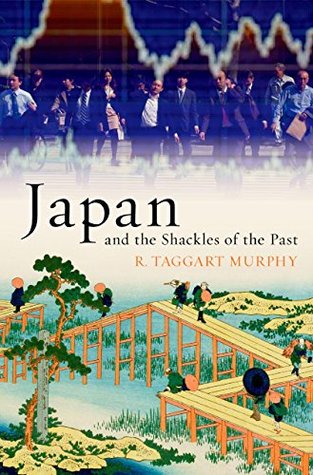More on this book
Kindle Notes & Highlights
Read between
September 26 - October 8, 2019
But it’s not that Japan’s executives do not understand the need to streamline inefficient practices. It is that they are unwilling to do it.
To paraphrase E. M. Forester, the good Japanese would prefer, if pressed, to violate some abstract principle—be that “shareholder value” or the “public good”—than betray those to whom he (or his organization) has ties of dependence, of obligation, and, yes, of friendship.
Adam Smith famously noted that “a single week’s. . . dissipation (can) undo a poor workingman forever.”
The overwhelming majority of young Japanese men, especially those from modest circumstances, are respectful, hard-working, polite, and with a keen sense of duty—to themselves, their families, their friends, their organizations, and the wider society. It is perhaps the key reason why Japan is such a pleasant place to visit and live and why the place has had a mind-boggling effect on generations of foreigners: because ordinary Japanese people take their responsibilities seriously.
to move backup power equipment out of the reach of a tsunami higher than the seawall that had been erected to protect the plant was to admit that, after all, risk had not been eliminated. One is reminded of Japanese banks operating without capital set aside for loan losses.
(There is, in fact, no clear line separating the political and cultural Right in Japan from the yakuza, and factions of the LDP have long used the yakuza to intimidate political opponents.)
Of course, this is all a fantasy. Prime Minister Hatoyama did attend the conference. But he was not granted time for even a short courtesy call on the president; the most he could get was a ten-minute aside during a large and noisy dinner. Meanwhile, leaders of China, Germany, Pakistan, and India all had face-to-face private meetings with Obama.
The resultant Battle of Okinawa counts as one of history’s greatest military atrocities; up to one-third of the population died, many in massed forced suicides that were deliberately staged to give the United States a supposed taste of what an invasion of the mainland would entail.
But Japan cannot be an ally of the United States—or anyone else—until it is first a sovereign state.
To understand what subsequently happened, one has to start with the apparatus that Tokyo has built over the past sixty-five years to influence both American opinion and American policy. Every country that wants and needs something out of Washington nurtures something like this, but with the notable exception of Israel, no country has built as robust and effective an apparatus as Japan has.
Any new account of Japanese outrages—manufactured or not, historical or contemporary—is almost guaranteed to produce some sort of reaction in China: demonstrations, vandalism against Japanese-owned properties, nationalist fervor. Things can end up out of control; in a repressive society, it is no easy task to keep steam-letting confined to approved channels of anti-Japanese sentiment.
Japan’s apologists are quick to point out that other countries have committed great wrongs with which they have not reckoned; that no matter what Japan does or says, its neighbors will never be satisfied, that they will continue to use the past as a stick with which to beat Japan. This is all true, but it is beside the point. It is not for the sake of the Koreans or the Chinese that a real reckoning with what happened in the 1930s needs to occur; it is for the sake of Japan.
Both Beijing and Pyongyang understand that the North Korean regime can only survive as long as China tolerates it. The Chinese have tolerated it to date, but there are signs Beijing is aiming for the greater prize of a modus vivendi with Seoul that would lead to reunification of the Korean peninsula under terms that both China and the Koreans would find acceptable.
Back in Tokyo, in a transparent ploy to influence the first real referendum on Abenomics, the February 2014 Tokyo gubernatorial elections, Abe stacked the NHK board of governors with rightist dinosaurs.
Control of NHK is one of the most effective means to influence what gets covered as news and what does not. NHK is said to be Japan’s BBC, theoretically above politics, with a role in determining what constitutes news in Japan vaguely comparable to that once played by CBS in the United States in the era of Walter Cronkite. NHK’s news programming can come across as bland, but the network did attempt to maintain at least the appearance of objectivity and nonpartisanship. No more. One of Abe’s new appointees was on record denying that the Nanjing massacre had ever occurred, another had praised a
...more
Yamazaki Takashi, the director of the runaway hit film trilogy Always: San-chome no Yūhi (“Always: Sunrise on Third Street”) that
Eien no zēro (“Eternal Zero”), it is
that going forward Japan hopes to play postwar France to China’s postwar Germany. To those who might say there is no Chinese Adenauer to respond to a Japanese de Gaulle, one can only respond that peace and goodwill have to start somewhere.


